Refrigerator 3 Pin Power Cords
₹599.00 Original price was: ₹599.00.₹499.00Current price is: ₹499.00.
Introduction to Refrigerator 3 Pin Power Cords
Understanding the fundamentals of refrigerator 3 pin power cords is crucial for ensuring the safe and efficient operation of appliances. These power cords are specifically designed to meet the heightened electrical demands of refrigerators, which makes them distinct from other types of power cords. Typically, refrigerator 3 pin power cords consist of three wires: live, neutral, and ground. The live wire carries the current to the appliance, the neutral wire completes the circuit, and the ground wire serves as an essential safety mechanism.
The importance of the 3 pin design lies in its ability to provide grounding. Grounding offers an additional layer of protection by directing any unintended electrical current away from the appliance and into the ground. This mechanism significantly reduces the risk of electrical shocks, fires, and other hazards, making the 3 pin design indispensable for large appliances like refrigerators. In contrast, two pin power cords lack grounding, which makes them unsuitable for high-power devices.
Materials used in manufacturing these power cords are carefully selected to meet rigorous safety standards. Typically, the wires are encased in durable, heat-resistant insulation made from materials like PVC or rubber. These materials not only safeguard the wires from wear and tear but also enhance their longevity. Additionally, the connectors are often constructed from high-grade metals like copper or aluminum to ensure excellent conductivity and minimal power loss.
The typical lifespan of a refrigerator 3 pin power cord can vary based on usage and environmental conditions, but it generally ranges between 5 to 10 years. Regular inspections and proper maintenance can help prolong their life. Given their critical role in household safety and appliance functionality, replacing worn-out or damaged power cords promptly is of utmost importance.
Technical Specifications of Refrigerator Power Cords: Wire Gauge and Length
The technical specifications of refrigerator power cords are integral to their safety and functionality. One of the primary aspects to consider is the wire gauge, usually expressed in square millimeters. Specifically, a 2.5mm² wire gauge is commonly used for refrigerator power cords. This gauge refers to the thickness of the wire, indicating both its diameter and the amount of current it can safely carry. The choice of a 2.5mm² wire gauge is warranted by its capacity to handle the electrical demands of a refrigerator without overheating, ensuring efficient and secure operation.
The length of the power cord is another crucial factor. Typically, refrigerator power cords are designed to be 2.5 meters in length. This length allows for a reasonable degree of flexibility in positioning the refrigerator, making it easier to place the appliance in various locations within a kitchen or storage area. Additionally, a 2.5-meter cord ensures that there is enough slack to reach outlets that may not be immediately adjacent to the refrigerator, while still maintaining an adequate power supply. An optimal length minimizes possible voltage drops, thereby maintaining the appliance’s performance and longevity.
International standards play a vital role in the design and manufacturing of refrigerator power cords. The 2.5mm² thickness and 2.5-meter length conform to safety regulations set forth by institutions such as the International Electrotechnical Commission (IEC) and Underwriters Laboratories (UL). These organizations establish guidelines to standardize electrical safety across different regions, ensuring that power cords are both secure and compatible with various electrical systems globally.
Compliance with these standards not only guarantees user safety but also enhances the reliability and efficiency of the refrigerator. By adhering to specified wire gauge and length requirements, manufacturers ensure that the power cords are capable of delivering consistent electrical performance, thereby protecting both the appliance and the user.
Installation and Maintenance Tips for Refrigerator Power Cords
Proper installation and maintenance of refrigerator power cords are essential for ensuring both the longevity of your appliance and the safety of your household. When installing a refrigerator power cord, begin by ensuring that the cord and outlet match in voltage and plug configuration. A mismatch can be a potential safety hazard. Carefully examine the three-pin plug to confirm there are no defects, and follow the manufacturer’s guidelines closely.
After verifying compatibility, insert the three-pin power cord into the corresponding socket on the refrigerator. Make sure it is securely connected before plugging the other end into a wall outlet. It is crucial to avoid using extension cords or power strips, as these can overload the circuit, leading to potential electrical failures. Placing the refrigerator near a grounded wall outlet will help mitigate this risk.
Regular maintenance is just as important as proper installation. Periodically inspect the power cord for signs of wear and tear, such as fraying, cracking, or exposed wires. Address these issues immediately to prevent electrical shorts or fires. Keeping the power cord free of bends and twists is another critical maintenance task. Tangled or tightly coiled cords can create undue stress on the wires and insulation, leading to potential damage.
Ensure that the power cord is not pinched or compressed by any heavy furniture or equipment. The refrigerator should be positioned in a way that allows the cord to lie flat and unobstructed. Additionally, keeping the area around the power cord clean and free of dust and debris can prevent overheating and ensure proper ventilation.
When it is time to replace the power cord, purchase one that meets the refrigerator’s specifications. Using non-standard cords can compromise both performance and safety. Following these installation and maintenance guidelines will help extend the lifespan of your refrigerator power cord and maintain a secure electrical environment in your home.
“`
Troubleshooting Common Issues with Refrigerator Power Cords
Understanding how to troubleshoot common issues with refrigerator power cords can be essential for maintaining the safe and efficient operation of your appliance. Electrical faults such as frayed wires and scorch marks are telltale signs to watch for. These indicate potential hazards that could lead to appliance failure or even pose safety risks like electrical fires. Inspect the power cord regularly, looking for any visible damage to the insulation or plugs.
Intermittent disconnection is another prevalent issue. This can often be diagnosed by observing whether the refrigerator’s power seems inconsistent. Unreliable connections might stem from loose plugs or damaged outlets. To diagnose, ensure the plug fits securely into the outlet; if there is any looseness, consider replacing either the plug or the outlet to restore a consistent connection.
When encountering a faulty cord, determining the appropriate steps can vary based on the extent of the damage. For minor issues such as slight fraying, temporary fixes like insulating the wire with electrical tape may provide an interim solution. However, be mindful that this is a temporary measure and a comprehensive replacement of the damaged section should follow to ensure safety.
In more severe cases, such as when scorch marks are present, it’s advisable to replace the entire power cord immediately. Scorch marks typically signify overheating, which can result from excessive electrical draw or faulty wiring. Such scenarios increase the risk of fire and require prompt action. Replacement cords should meet the manufacturer’s specifications to ensure compatibility and safe operation.
Knowing when to seek professional help is crucial. While minor issues can often be managed independently, serious electrical problems should always be handled by a certified electrician. Indicators like continuous tripping of circuit breakers, persistent power loss, or significant physical damage to the cord necessitate expert intervention to avoid further hazards.
Incorporating these troubleshooting steps can help you maintain your refrigerator’s power cord efficiently, ensuring both the appliance’s longevity and your household’s safety.
Only logged in customers who have purchased this product may leave a review.
Related products
-
Refrigerator Parts
Single Door Fridge Bottle Rack Shelf
Rated 0 out of 5₹699.00Original price was: ₹699.00.₹599.00Current price is: ₹599.00. Add to cart -
Refrigerator Parts
Freezer Thermometers
Rated 0 out of 5₹1,299.00Original price was: ₹1,299.00.₹1,199.00Current price is: ₹1,199.00. Add to cart -
Refrigerator Parts
Freezer Refrigerator Bulbs
Rated 0 out of 5₹499.00Original price was: ₹499.00.₹399.00Current price is: ₹399.00. Add to cart -
Refrigerator Parts
Freezer Door with Whirlpool 245L Refrigerators
Rated 0 out of 5₹999.00Original price was: ₹999.00.₹899.00Current price is: ₹899.00. Add to cart

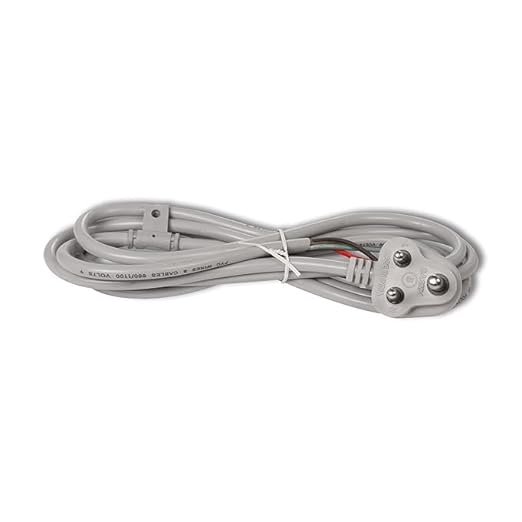
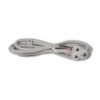
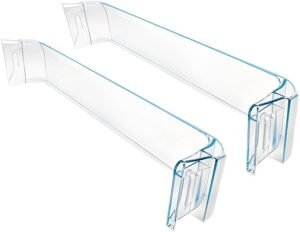
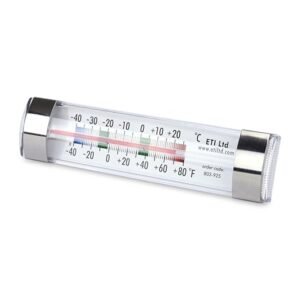
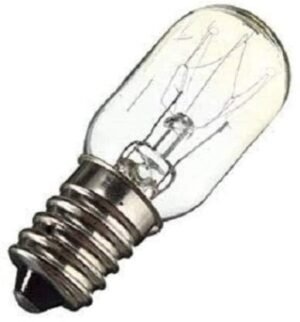
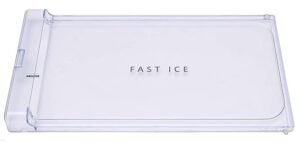
Reviews
There are no reviews yet.